No Sales or Lackluster Sales: It Isn’t the Reader, It’s the Book…Really
 Original image courtesy of Juhan Sonin via Flickr Creative commons.
Original image courtesy of Juhan Sonin via Flickr Creative commons.No sales or lackluster sales. It isn’t the reader’s fault. It’s the book. Really. This is tough to hear. I know.
It’s a writer’s worst nightmare. You researched, you wrote, you finished, and then published your book. You wait for the sales and….
*crickets*
This is something that can happen to any kind of author, traditionally or nontraditionally published.
We think we have a hit on our hands only to later be checking our work for a pulse. What happened? Why did everything go sideways? Where are the SALES?
Sales & The Market
 Remaindered titles.
Remaindered titles.In the not so distant past, there was only one way to get published and that was traditional publishing. Though many authors cheered when they were finally able to cast off the chains of New York, let’s at least respect that agents and editors might have known a thing or three about the book business and how to generate book sales.
Writers would often get vexed at the stack of rejection letters, believing they couldn’t actually write well.
This was not always the case. Sometimes the writing was perfectly fine, or even really good. Great even.
Alas, agents made their living off books they knew would sell, which meant they just didn’t have the bandwidth left over to take on pro bono work. Yes, the book might have been lovely, but they were agents, not charities. They couldn’t gamble on a well-written book in an untested genre or for an unvetted audience.
Agents had to find the book they knew publishers would BUY based on metrics of what had already sold well in the past.
Not a perfect way of doing business, but better than guessing and paying a blind oracle to throw chicken bones.
***This is largely still how things work, though publishing is in so much flux that agents are doing things differently these days because the paradigm has changed so drastically.
Sales kept the lights on.
Agents predicted market changes and trends. They looked at what was already out, what was slated to be released, what was already selling, what wasn’t, what was saturated, etc. Then, they used that data to maneuver their authors around the sales minefield.
Still do to the best of their abilities.
This is where it can get tricky for writers. Yes, write what you love. We shouldn’t write for the market…but we have to write for the market.
*bangs head on wall*
Sometimes a book might not be selling simply because there are too many titles that are too similar. Readers maybe don’t want yet another tired vampire retread.
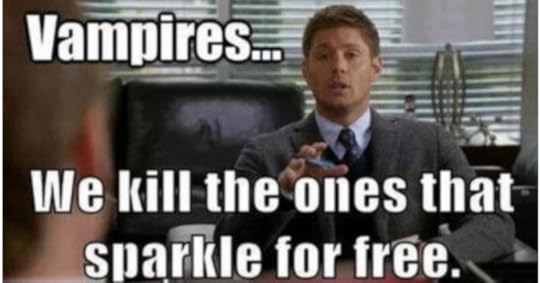
If you are traditionally published, this could still happen. Agents are making an educated guess and sometimes they miss the mark.
***As a caveat though. A hedge fund bought Barnes & Noble in June, Dean Koontz defected to the Amazon-powered Thomas Mercer in July, and Penguin just sold last month. So, legacy publishing is in a righteous hurt locker at the present. They don’t have the luxury of missing many sales marks any more.
For the self-published folks? If your book is good, just leave it alone and keep writing. The great part about the digital paradigm is the book can remain there indefinitely and when the trends change? So could the sales numbers.
Sales & The Product
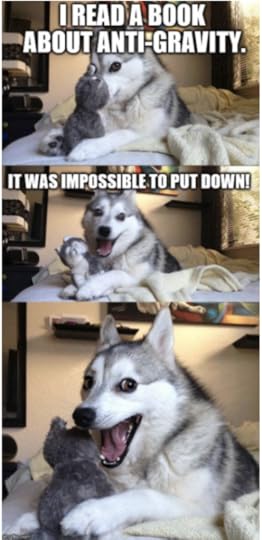
I hate saying this, but sometimes it’s the book. Obviously this is more the case with indie and self-published books. The problem is that the market has just been inundated with amateur writing. I go into this in more detail in Five Mistakes Killing Self-Published Writers, but here are the Spark Notes.
Bad Writing
No one wants to hear they are not ready. Worse still? No one wants to hear the words, ‘You’re just not a good writer.’ Too many newbies want to skip the un-fun training and go right to the title, ‘Author.‘
Sadly, the slush pile has been handed off to readers. I rarely do edits because I’ve grown weary of arguing with ‘writers’ who can’t even punctuate. Their books aren’t selling and they hire me to tell them why.
I explain WHY, then they send me long emails how I am mean and horrible because I won’t tell them it’s the reader’s fault for not seeing their hidden genius or that it’s a failure in the marketing plan.
I’m a bad person because I expect them to tell a STORY, not camp on self-indulgent tripe that only entertains THEM at the expense of the audience. So if expecting writers to know how to do the very BASIC of their job is mean?
I’ll own that.
If I want writers to actually reach for something other than reheated, microwaved tropes served so many times they’re no longer fit for human consumption?
Then yes, I am a vile and horrid person.
This is the ADULT TABLE. Those who want to play Literary Barbies and Literary G.I. Joe aren’t allowed a seat here until they grow up. And that doesn’t—in my book—make me ‘mean.’
It makes me a professional.
Moving on…
Bad (No) Editing
Our story might be the best thing since pumpkin spice lattes, but if it is so rife with errors it won’t sell? Shame, shame. Additionally, editing is not simply looking for typos. That is line-editing or proofreading.
A good developmental editor (or content editor) will be able to help you shape the overall flow of the novel. But they cost a lot (good ones do, anyway).
This is why it’s a good idea to read a lot and take classes and LEARN the craft. It will save a lot of time and cash in the long run.
When I edit, I can tell writers if they are starting the book in the correct place. Are there scenes that need to be cut because they are bogging down the momentum? Are there redundant characters? Am I spotting any plot holes? Is the ending a knockout? A fizzle? Or a WTH?
Great editing can take a book from meh to magnificent.
Bad Cover
There really is no excuse for a bad cover these days. Technology has come a long way, and many experts offer fabulous covers at affordable prices. I would love to say people don’t judge a book by its cover, but that is untrue.
Of course we do.
One thing many new writers don’t appreciate is that when you hire an expert, you’re gaining a lot more than that one skill. Yes, a graphic artist knows how to use Photshop (or whatever) but they also have a knowledge of what sells.
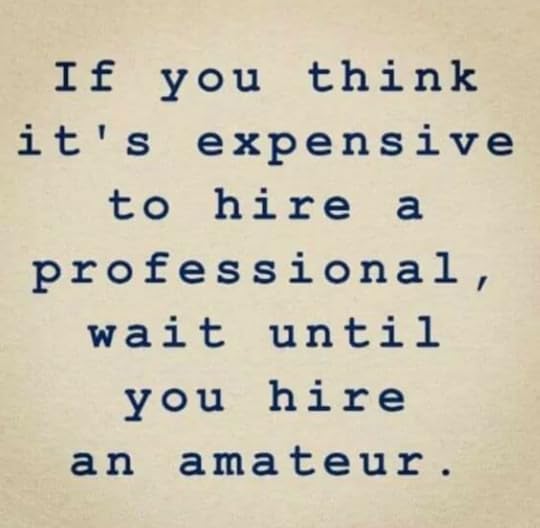
For instance, I’ve seen authors post images of their new book cover and cringed. The cover itself was lovely, but we have to remember how we are selling.
That book isn’t going to be on a shelf where a potential reader is seeing a full-sized version. Likely it will be on Amazon and that beautiful full-sized image, when shrunk to thumbnail size looks like a Rorschach ink blob.
Do you see a butterfly?
No, I see Satan eating kale chips.
If a writer tells me they can’t afford to hire an expert, my response is they cannot afford not to.
Boring Title
This goes along with a bad cover. New writers are notorious for titles that we have to read the book to ‘get’ the title. NO. The title is the hook and we will move on to other writers who don’t make us think so hard.
The Sales Platform
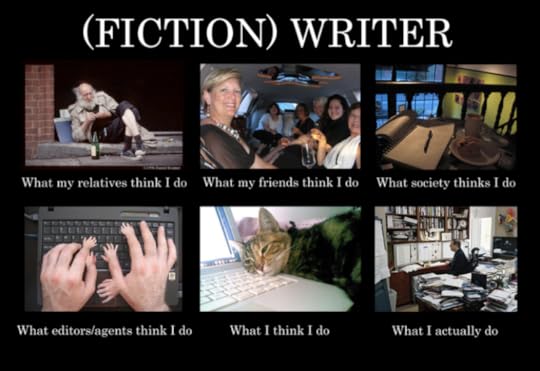
Discoverability is a nightmare. There is a lot of noise and part of our job description now entails branding. This is all writers.
I recently had a distraught writer contact me. The author was recently dropped by a well-known agent because the book simply wasn’t selling. Yet, I could tell with a quick google search what a big part of the problem was.
The author didn’t have platform/brand capable of driving sales. Simply puttering around on Facebook isn’t enough. That isn’t a brand.
My first royalty check would have covered dinner if no one super-sized anything. Why? My book came out before my platform could drive sales. Once my platform improved? My sales skyrocketed.
What does it say in front of every big author’s name? Best Selling Author. Not Best Writing Author.
The writing alone is not enough. Frankly, it never was. Before 2006, writers had a 93% failure rate. Most first books sold less than a thousand copies (even traditionally published books). Only one out of ten published authors ever saw a second book in print. Most were dropped.
In the old days, we just had no control over the brand and the platform. Now, we do. And authors want to complain that it is too hard. Yes, it is hard and there are many reasons this profession is not for everyone.
Less Marketing/More Writing
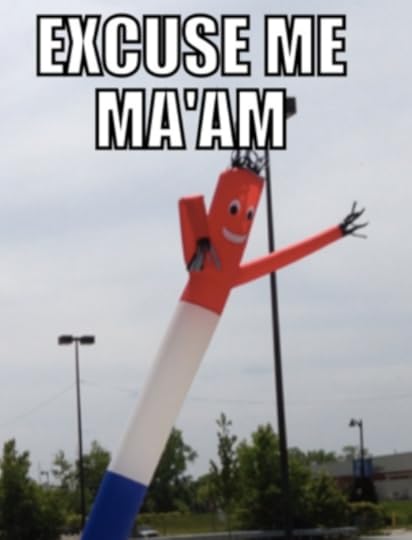 AHHHHHHHHH!
AHHHHHHHHH!Traditional marketing does not sell books. Never has. For more on why, check out Why Traditional Marketing Doesn’t Sell Books. I have had to unfollow writers on Facebook who do nothing but promote one book over and over and over.
They tweet non-stop about their book, and dedicate their blogs to selling books (and that is NEVER the direct objective of a blog). ‘Authors’ deluge us with newsletters we never signed up for and can’t figure out how to escape.
Thing is, we don’t care about you or your book.
***To be fair, you don’t care about me or mine, either 



